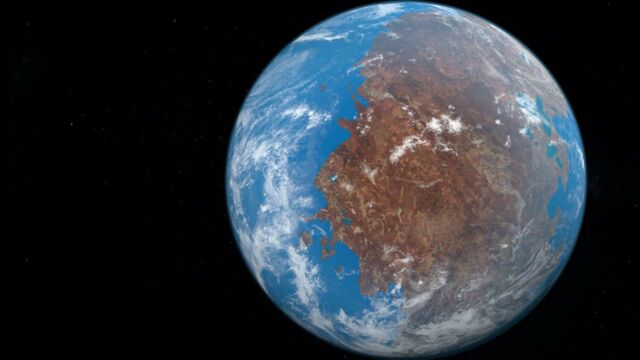It’s hard to imagine the Earth without its seven continents. As history has told us, before the formation of its seven continents, all the land mass on Earthwas joined making one large mass of land. According to National Geographic, the flow of the currents resulted in the lands forming cracks and then slowly drifting apart. However, it seems like history will repeat itself as Earth might have one giant continent in the future.
Discover our latest podcast
Never-ending ocean recycle
The Pacific Ocean has played an essential role throughout history as the biggest ocean on Earth. As reported by Science Alert, the Pacific will cease to exist in some 300 million years. The diagnosis was revealed by a new simulation by a supercomputer of ‘Earth's ever-drifting tectonic plates’.
Pacific Ocean set to make way for world's next supercontinent #AMASIAhttps://t.co/JcFyDFCsIl
— Ronen Seliger (@nensta3) October 4, 2022
The tectonic plates in the ocean act like one giant recycling system. The new lava from the bottom of the ocean erupts and forms a fresh crust while gulping in the old crust into the depths of the cracks.
Pacific is shrinking
The recycling process is resulting in the shrinkage of the Pacific ocean slowly. As the tectonic plate of the Pacific slips more and more under the Eurasian and Indo-Australian plates, the distance between North America, Asia and Australia automatically lessens.
The formation of the future continent would be nothing like the one from millions of years ago. In fact, some studies suggest that the increasing shrinkage of the ocean might result in North America merging with Asia, resulting in a continent which is dubbed ‘Amasia’. As shared by Science Alert:
This new [simulation] one suggests the Pacific Ocean, and not the Atlantic Ocean or Caribbean Sea, will be destroyed when Amasia forms.
However, there have been studies contradicting the exact formation of the massive continent and which regions would be beside each other.
Sources used:
-National Geographic: Continental drift
-ScienceAlert: The Pacific Is Destined to Vanish as Earth's Continents Meld Into a New Supercontinent
Read more:
⋙ 'End of civilization' may only be 18 years away, researchers predict
⋙ A sunspot so huge that it’s affecting the Sun: How will it impact Earth
⋙ The Earth broke a remarkable record this year, but it could leave 'devastating' effects















